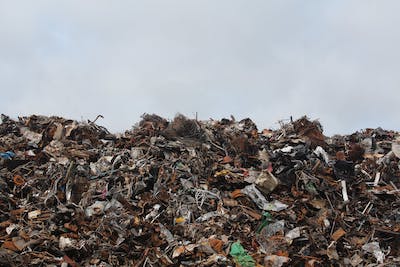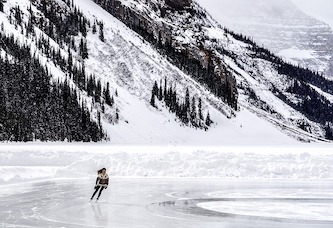England has added 27 new places where people can swim in nature, like rivers and lakes. This is the biggest increase ever. But just because a place is marked for swimming doesn’t mean it’s clean. Some rivers on the list are still dirty. People like Alison Biddulph are happy but know the water might still be bad because of things like farms and sewage.
Last year, most swimming places in England were okay, but fewer were excellent, and more were bad. The government checks these places often and shares the results online. If a place is bad for five years in a row, it loses its special status. Some people are upset because cleaning the water is taking too long. But marking a place for swimming can help get it cleaned up faster.
Original news source: 27 new wild swimming sites for England – but are they clean? (BBC)
🎧 Listen:
Slow
Normal
Fast
📖 Vocabulary:
| 1 | increase | To get bigger or more |
| 2 | marked | Labeled or shown with a sign |
| 3 | sewage | Dirty water from toilets and drains |
| 4 | excellent | Very, very good |
| 5 | government | The group of people who run the country |
| 6 | results | What you get after doing something |
| 7 | status | The level or rank of something |
| 8 | upset | Feeling sad or angry |
| 9 | cleaning | Making something not dirty |
| 10 | faster | Happening more quickly |
Group or Classroom Activities
Warm-up Activities:
– News Summary
Instructions:
1. Read the article aloud to the class.
2. Explain that the students will need to summarize the main points of the article in their own words.
3. Divide the class into pairs or small groups and give each group a few minutes to discuss and come up with a summary.
4. Have each group share their summary with the class.
– Opinion Poll
Instructions:
1. Write the following question on the board: “Do you think it’s important to have clean swimming places in nature? Why or why not?”
2. Explain that the students will need to discuss and form their own opinions on the question.
3. Divide the class into pairs or small groups and give them a few minutes to discuss and share their opinions.
4. As a class, conduct an opinion poll by asking each student to share their opinion and briefly explain their reasoning.
– Vocabulary Pictionary
Instructions:
1. Write a list of key vocabulary words from the article on the board (e.g. swim, nature, dirty, farms, sewage, etc.).
2. Divide the class into pairs or small groups and give each group a few vocabulary words.
3. Explain that each group will take turns sending one student to the board to draw a picture representing one of the words, while the rest of the group tries to guess the word.
4. Continue until all the words have been drawn and guessed.
– Synonym Challenge
Instructions:
1. Write a list of key vocabulary words from the article on the board (e.g. swim, nature, dirty, farms, sewage, etc.).
2. Divide the class into pairs or small groups and give each group a few vocabulary words.
3. Instruct the students to come up with as many synonyms as they can for each word on their list.
4. After a few minutes, have each group share their synonyms with the class.
– Think-Pair-Share
Instructions:
1. Write the following prompt on the board: “What are some possible solutions for cleaning up dirty swimming places in nature?”
2. Explain that the students will need to think individually, discuss with a partner, and then share their ideas with the class.
3. Give the students a few minutes to think and jot down their ideas.
4. Pair up the students and give them a few minutes to discuss their ideas.
5. Ask each pair to share their ideas with the class.
🤔 Comprehension Questions:
1. What did England do to make more places for people to swim?
2. Are all the swimming places clean?
3. Why might some rivers still be dirty?
4. Were most swimming places in England okay last year?
5. What happens if a place is bad for five years in a row?
6. Why are some people upset about cleaning the water?
7. How can marking a place for swimming help get it cleaned up faster?
Go to answers ⇩
🎧✍️ Listen and Fill in the Gaps:
England has added 27 new (1)______ where people can swim in (2)______, like rivers and lakes. This is the biggest increase ever. But just because a place is marked for swimming doesn’t mean it’s (3)______. Some rivers on the list are still dirty. People like Alison (4)______ are happy but know the water might still be bad because of things like farms and sewage.
Last year, most (5)______ places in (6)______ were okay, but fewer were excellent, and more were bad. The government checks these places often and shares the results online. If a place is bad for five years in a row, it loses its special status. Some (7)______ are upset because cleaning the water is taking too long. But (8)______ a place for swimming can help get it cleaned up faster.
Go to answers ⇩
💬 Discussion Questions:
Students can ask a partner these questions, or discuss them as a group.
1. What is swimming in nature?
2. How would you feel if you went swimming in a dirty river?
3. Do you like swimming in lakes?
4. Do you think it’s important for swimming places to be clean? Why or why not?
5. How do you think farms and sewage can make the water dirty?
6. What does it mean if a swimming place loses its special status?
7. Have you ever gone swimming in a river or lake? How was it?
8. Do you think the government should clean the water faster? Why or why not?
9. What can happen if you swim in dirty water?
10. How can marking a place for swimming help get it cleaned up faster?
11. What do you think the government should do to make sure swimming places are clean?
12. Would you like to swim in a river or lake? Why or why not?
Individual Activities
📖💭 Vocabulary Meanings:
Match each word to its meaning.
Words:
1. increase
2. marked
3. sewage
4. excellent
5. government
6. results
7. status
8. upset
9. cleaning
10. faster
Meanings:
(A) Dirty water from toilets and drains
(B) What you get after doing something
(C) Happening more quickly
(D) Feeling sad or angry
(E) To get bigger or more
(F) Making something not dirty
(G) The group of people who run the country
(H) The level or rank of something
(I) Labeled or shown with a sign
(J) Very, very good
Go to answers ⇩
🔡 Multiple Choice Questions:
1. What did England add 27 new places for?
(a) Swimming in nature
(b) Playing soccer
(c) Riding bikes
(d) Watching movies
2. Are all the new swimming places clean?
(a) No, some are still dirty
(b) Yes, they are all clean
(c) No, they are all closed
(d) Yes, they are all closed
3. Who is Alison Biddulph?
(a) A famous singer
(b) A teacher
(c) A professional swimmer
(d) A person who is happy about the new swimming places
4. Were most swimming places in England okay last year?
(a) No
(b) Yes
(c) Maybe
(d) I don’t know
5. What does the government do to check the swimming places?
(a) They don’t check them at all
(b) They check them once a year
(c) They check them and keep the results secret
(d) They check them often and share the results online
6. What happens if a swimming place is bad for five years in a row?
(a) It becomes cleaner
(b) It loses its special status
(c) It gets more visitors
(d) It gets more money
7. Why are some people upset?
(a) Because the swimming places are too crowded
(b) Because the government is not checking the places
(c) Because cleaning the water is taking too long
(d) Because the swimming places are too expensive
8. Can marking a place for swimming help get it cleaned up faster?
(a) No
(b) Maybe
(c) Yes
(d) I don’t know
Go to answers ⇩
🕵️ True or False Questions:
1. All of the rivers on the list are still dirty, even though they are marked for swimming.
2. Marking a place for swimming cannot help make it get cleaned up faster.
3. Alison Biddulph and other people are happy about the new swimming places, but they know the water might still be bad because of farms and sewage.
4. Some people are upset because it is taking a long time to clean the water.
5. If a place is bad for five years in a row, it loses its special status for swimming.
6. The government checks the swimming places often and shares the results online.
7. Last year, most swimming places in England were not okay, and more were excellent while fewer were bad.
8. England has closed 27 new places for people to swim in rivers and lakes.
Go to answers ⇩
📝 Write a Summary:
Write a summary of this news article in two sentences.
Check your writing now with the best free AI for English writing!
Writing Questions:
Answer the following questions. Write as much as you can for each answer.
Check your answers with our free English writing assistant!
1. What did England do to make more places for people to swim?
2. Are all the swimming places clean?
3. Why might some rivers still be dirty?
4. How does the government check the swimming places?
5. What happens if a place is bad for five years in a row?
✅ Answers
🤔✅ Comprehension Question Answers:
1. What did England do to make more places for people to swim?
England added 27 new places for people to swim in nature like rivers and lakes.
2. Are all the swimming places clean?
No, not all the swimming places are clean.
3. Why might some rivers still be dirty?
Some rivers might still be dirty because of things like farms and sewage.
4. Were most swimming places in England okay last year?
Yes, most swimming places in England were okay last year.
5. What happens if a place is bad for five years in a row?
If a place is bad for five years in a row, it loses its special status.
6. Why are some people upset about cleaning the water?
Some people are upset because cleaning the water is taking too long.
7. How can marking a place for swimming help get it cleaned up faster?
Marking a place for swimming can help get it cleaned up faster because it shows that people want to swim there, so the government will try to clean it up.
Go back to questions ⇧
🎧✍️✅ Listen and Fill in the Gaps Answers:
(1) places
(2) nature
(3) clean
(4) Biddulph
(5) swimming
(6) England
(7) people
(8) marking
Go back to questions ⇧
📖💭✅ Vocabulary Meanings Answers:
1. increase
Answer: (E) To get bigger or more
2. marked
Answer: (I) Labeled or shown with a sign
3. sewage
Answer: (A) Dirty water from toilets and drains
4. excellent
Answer: (J) Very, very good
5. government
Answer: (G) The group of people who run the country
6. results
Answer: (B) What you get after doing something
7. status
Answer: (H) The level or rank of something
8. upset
Answer: (D) Feeling sad or angry
9. cleaning
Answer: (F) Making something not dirty
10. faster
Answer: (C) Happening more quickly
Go back to questions ⇧
🔡✅ Multiple Choice Answers:
1. What did England add 27 new places for?
Answer: (a) Swimming in nature
2. Are all the new swimming places clean?
Answer: (a) No, some are still dirty
3. Who is Alison Biddulph?
Answer: (d) A person who is happy about the new swimming places
4. Were most swimming places in England okay last year?
Answer: (b) Yes
5. What does the government do to check the swimming places?
Answer: (d) They check them often and share the results online
6. What happens if a swimming place is bad for five years in a row?
Answer: (b) It loses its special status
7. Why are some people upset?
Answer: (c) Because cleaning the water is taking too long
8. Can marking a place for swimming help get it cleaned up faster?
Answer: (c) Yes
Go back to questions ⇧
🕵️✅ True or False Answers:
1. All of the rivers on the list are still dirty, even though they are marked for swimming. (Answer: False)
2. Marking a place for swimming cannot help make it get cleaned up faster. (Answer: False)
3. Alison Biddulph and other people are happy about the new swimming places, but they know the water might still be bad because of farms and sewage. (Answer: True)
4. Some people are upset because it is taking a long time to clean the water. (Answer: True)
5. If a place is bad for five years in a row, it loses its special status for swimming. (Answer: True)
6. The government checks the swimming places often and shares the results online. (Answer: True)
7. Last year, most swimming places in England were not okay, and more were excellent while fewer were bad. (Answer: False)
8. England has closed 27 new places for people to swim in rivers and lakes. (Answer: False)
Go back to questions ⇧















